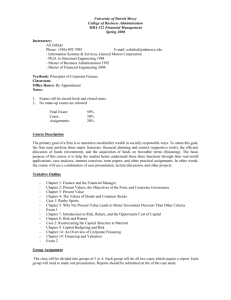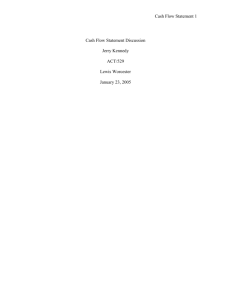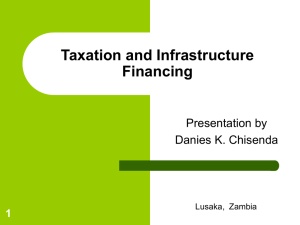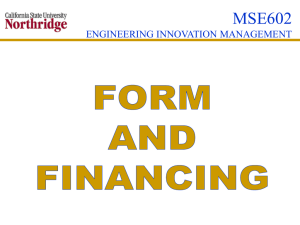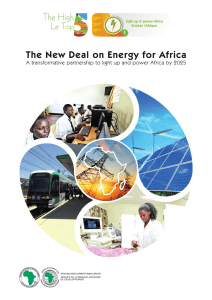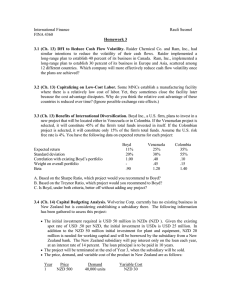new financial contributions January 2005
advertisement
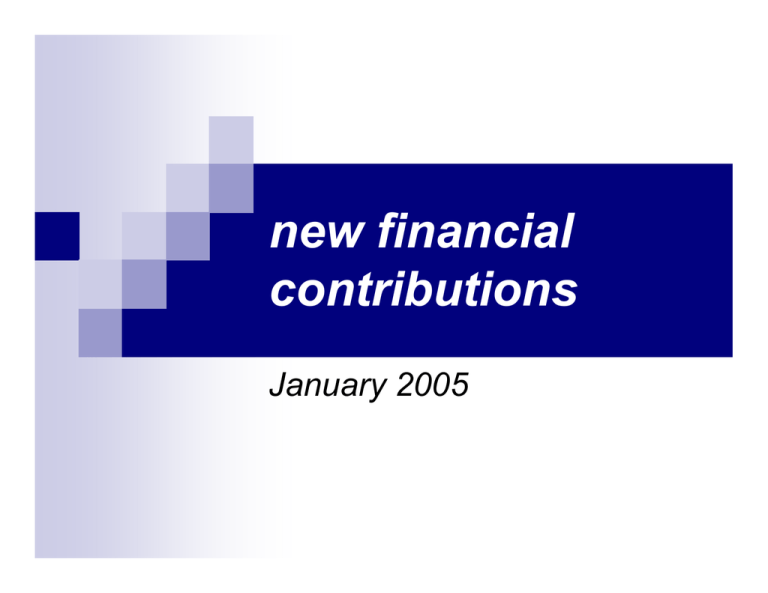
new financial contributions January 2005 do we really need innovative financing mechanisms ? ¾ the role of private capital flows and remittances (limited in poorest countries) ¾ a priority : meet our commitments to increased ODA (0.7% GDP) ¾ another priority : domestic resource mobilization and fighting tax evasion ¾ is there a case for new mechanisms ? some paradoxes no financing for primary education ; total needs : ~ 3 bds $/year financing gap in the global health fund ~ 1 bd $/year for 10 basic surgical acts over the world 100 mUSD/year for “green fertilizers” for African farmers the problem the need for a stable and predictable resource ¾ ¾ ¾ to finance recurring expenditures (education health) to produce global public goods (medical research) to reduce volatility in aid flows the system does not deliver such a resource ¾ annual budget constraints ¾ coordination problems negotiations on changing priorities and burden sharing high transactions costs free riding and under financing some examples 10% biomedical R&D goes to tropical diseases (90% of global disease burden) NHI spends 2.7 bn USD on cancer and 65mUSD on tuberculosis budget CGIAR network (16 tropical agricultural research centers) : $400m ; six biggest agro biotech companies : 3bn$ global health fund (USD billion) 1,6 1,4 1,2 1 amount pledged value of approvals value of disbursements 0,8 0,6 0,4 0,2 0 2001-2002 2003 2004 do we need innovative financing mechanisms? what are the options ? questions and unresolved issues new financial contributions voluntary contributions • US philanthropy • private foundations • additionnal payments on credit cards « enhanced » and/or coordinated voluntary contributions matching funds tax incentives International Finance Facility (IFF) « automatic » budget contributions international taxes, charges and fees international taxation environmental taxation and global common goods : carbon tax air and maritime maritime transport a fee on the use of global common goods (straits) additions to existing taxes (solidarity ?) financial transaction taxes very low rates (non distortive) market-making activities exempted questions on incidence tax on arms purchases (domestic and international) no institutional innovation ¾ no « world tax organization » ¾ only states have the power to tax no taxation without representation ¾ ¾ several possible financial mechanisms through national budgets( EU) a normal legal architecture an international treaty (or political declaration) national legislation and enforcement common allocation of resources a precedent : IOPC bypassing national budgets (postal union)

